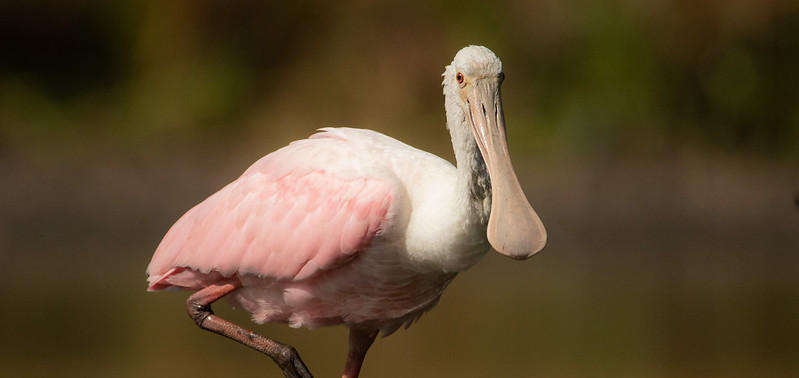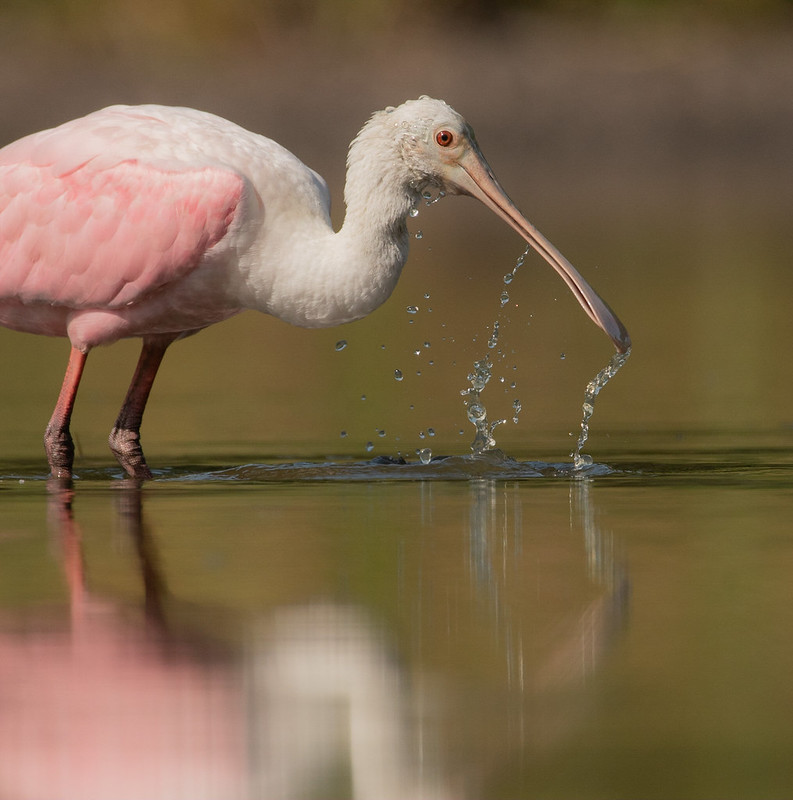
It’s not a flamingo, it’s a Roseate Spoonbill! These large pink wading birds have a spoon-shaped bill and bare yellowish green head. These beautiful birds can be found foraging in fresh, brackish, and marine waters and will roost and nest in shrubs along the water’s edge. How are they pink? Well, Roseate Spoonbills are pink due to their diet that consists of a variety of crustaceans and other small aquatic invertebrates that contain a pigment called carotenoids. When foraging, they sweep their partly opened spoon-shaped bill back and forth through the water feeling and looking for crustaceans. When they find their prey, they snap their bill closed and swallow their prey whole!
Roseate Spoonbills are social birds and often nest in colonies with egrets, herons, and ibises. The males will shake nearby twigs and bob their heads to attract a female. Once they are paired, the male will present the female with sticks, and she begins building the nest. The pair will only stay together for one breeding season and the female will build the nest in the shadiest part of the tree or shrub up to 16 feet high. When the chick is first hatched it does not have a spoon-shaped bill like its name suggests! The spoon-shaped bill will form over time and at 39 days its bill is nearly full size.

These unique birds can live up to 15 years and are 1 of 6 spoonbills in the world but are the only spoonbill that can be found in the Americas. Due to Roseate Spoonbills nesting and foraging in areas that are difficult to reach and survey, obtaining an estimate of their population is difficult. The best estimates on their populations have been obtained by the North American Breeding Bird Survey and Partners in Flight. With these estimates the North American Breeding Bird Survey has found their populations have nearly increased 6.5% per year between 1966 and 2019. With their population steadily growing, the species is of low conservation concern, although in some areas, nesting Roseate Spoonbills are vulnerable to human disturbance from boating and other recreational activities that have resulted in nests being abandoned. The Roseate Spoonbill is truly an amazing bird and can often be seen foraging along the water’s edge and showing off its pretty pink color. To witness these beautiful birds in action join us on the water either through a guided boat, kayak, and paddleboard tour or on your own by renting a kayak or paddleboard!
Post by Ally Jo Salomon (Naturalist Guide)
